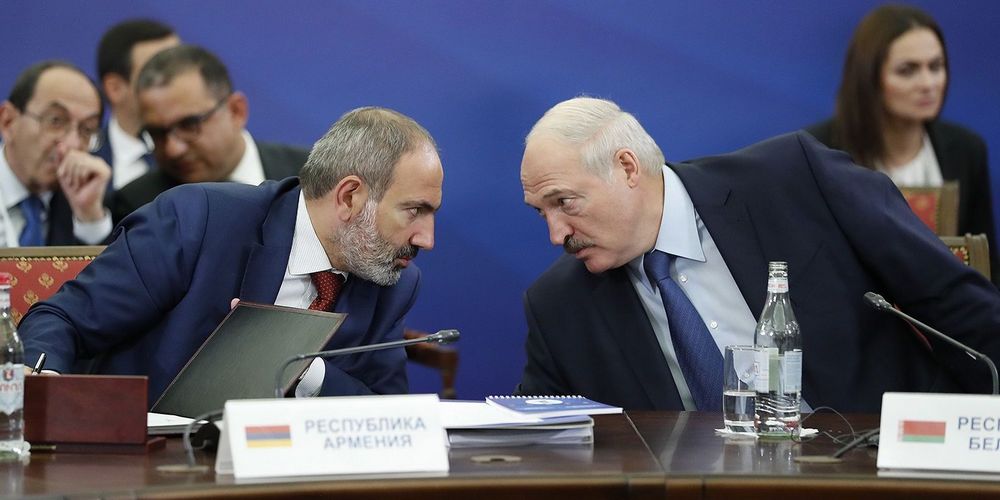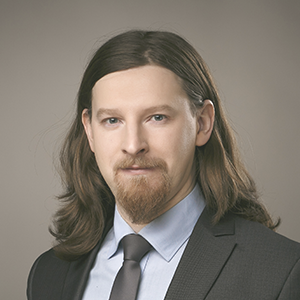Search

Publications
Inconvenient truth: Armenia’s reaction to the words by the President of Belarus

The interview of the Belarus leader Alexander Lukashenko to one of the most known Russian journalist Vladimir Solovyov had a wide response not only in Belarus and in Russia – the closest allied countries, because in its most part it specifically dealt with the common agenda. However, Lukashenko touched upon the development prospects of the Common state for the next 10-15 years and voiced his forecasts with regard to practically the entire FSU, including the Transcaucasian countries.
Armenia’s reaction
The President of Belarus used especially bright words referring to Armenia: in his opinion «There is no escape for Armenia. What do you think, someone really needs them? They have seen it with their own eyes, Nikol Pashinyan has seen it». In the context of the question posed by Vladimir Solovyov that meant that Armenia had no other way out, but to join the Union of Belarus and Russia.
In Yerevan this message was perceived ambiguously – the Ambassador of the Belarus Republic was summoned to the Ministry of Foreign Affairs of Amenia and informed about the following position: all the statements about each other should be based on mutual respect taking into account the interests and sovereignty of both parties.
In his comments, Vagan Unanyan, the Armenian Foreign Ministry spokesperson called Lukashenko’s opinion «a peculiar geopolitical analysis» geared towards the domestic agenda and having no relation whatsoever to the foreign policy of the Republic of Armenia. Akop Arshakyan, the Deputy Speaker of the Armenian Parliament, also is sure in the domestic focus of the Lukashenko’s statements. He emphasized that the issue of Armenia joining any alliances or unions was not on the radar.
Overall, it may be acknowledged that the public reaction of Armenian political circles and media to Lukashenko’s words obviously was negative. The Armenian society is sensitive to any discussions about the need for close political integration with Russia, especially with account of the current geopolitical and military-and-political situation in the Southern Caucasus.
New status quo
The words of Alexander Lukashenko about the outlook for the development of the Common state may be seen as targeted at domestic politics or as his personal opinion, but that does not cancel the drastic changes in the situation in and around Armenia. In all appearances, so far Yerevan has no sufficient self-reflection and conclusions associated with the new position of the country.
The defeat in the Second Karabagh war affected the need to change Armenia’s positioning and the nature of its foreign policy in the most significant way. Armenia failed to become a «citadel state» or «new Israel» engaged into an on-going exhausting struggle with the neighbors for expansion of the ethnic national state. Obviously, the political establishment preceding Pashinyan and his team (the so-called «Karabagh clan» hardly played the minor role in the military defeat, because this establishment failed to prepare the country and its armed forces to such a conflict in Karabagh – neither in the military and technical sense, not economically.
Nikol Pashinyan came into power capitalizing on the wave of protests against corruption and abuse among the Armenian ruling elites. His party «Civil Contract» demonstrated a clear-cut victory (54%) in the early parliamentary election versus the party «Armenia Alliance» led by his main opponent Robert Kocharyan (21%). It means that the Armenian society in its major part got tired both of former elites and of on-going crisis around Karabagh.
To confirm this conclusion, it is worth noting that Pashinyan and his party won right after the military defeat and the Trilateral Ceasefire in Karabagh, for which the Armenian Prime-Minister assumed the political responsibility and due to which his opponents accuse him of treason and national interests surrendering.
Recognition of realities
Various Armenian stakeholders including those in favour of revanchist sentiments have to account for the reality: return of significant portion of Karabagh (which used to be occupied by the Armenians) under the control of Azerbaijan, Nikol Pashinyan holding on to power with his political course supported by the majority of electorate, the plans of Russia, Turkey and Iran to unblock the region and develop transportation links.
Today, Armenia has approached the watershed meant to define its future: it will remain just an «office» for global Armenian community without any serious development prospects spending all its resources on militarization and continuation of utopian «Great Armenia» effort, or Armenia will become a viable state connecting the South Caucasus region and not dividing it.
Paradoxical as it may sound, the recent events in Karabagh open new opportunities for Yerevan, mainly in economic development. These changes are already in process. In particular, we may mention a meeting between special representatives of Armenia and Turkey dedicated to normalizing the bilateral relations, which took place in Moscow on 14 January 2022. Prior to that, there was no dialogue at all between the two countries for more than 10 years.
So far, the results are modest – there is an agreement to restore direct flight connection, but the land boundaries still are sealed off. We are talking here, first of all, about «Zangezur corridor» – the shortest route connecting Turkey and Azerbaijan. In any case, these negotiations constitute a serious shift, and the parties intend to continue: their next meeting is scheduled for 24 February in Vienna.
The alliance prospects
How can the new status quo in the Southern Caucasus affect the alliance prospects for Armenia, i.e., its participation in various integration processes going on around Russia and led by Russia? This was exactly what President Lukashenko spoke about.
To start with, we need to understand that Russian military base No.102 in Gyumri helps a great deal to guarantee the security for Armenia and its borders, Russian peacekeeping forces in Karabagh guarantee the ceasefire and prevent ethnical conflicts. It means that Russia plays a colossal role for Armenian sovereignty in the conditions, when the country is squeezed between not the friendliest neighbors.
This contrasts greatly with the position of that part of Armenian political spectrum, which is blaming the Russian Federation for not rendering assistance to Armenia during the Second Karabagh war, as well as of the part of Armenian society (11% according to International Republic Institute – as of December 2021), which sees Russia as a «threat».
Curiously, despite the political turmoil and military defeat, Armenian economy is demonstrating sustainable growth. Thus, Armenian GDP growth in 2021 was expected at 5-6.5% level, and it will be achieved, to a great extent, due to Armenia being a member of Eurasian Economic Union and close relations with the Russian Federation. The GDP forecast for 2022-2023 is favorable for Armenia – 4.8-5.4% per year.
This proves that the course towards military, political and economic integration with the Russian Federation proved to be correct, and there is no other realistic alternative to integration with Russia and its allies for Armenia.
At the same time, one needs to remember that Moscow has its own geopolitical interests in the region, which lie in the sphere of establishing and maintaining peace along the perimeter of its borders, in developing transportation links along the line of North – South, normalizing the relations between the opposing parties, with which Russia would like to have friendly relations, not making the choice solely in favour of just one of them. Especially if there are questions about whether this particular party’s position is stabilizing and is in line with the interests of the entire region, but not in the interests of only one nationalistic part of the elite of this important, but not very powerful state.
What did Lukashenko mean?
Lukashenko’s words about Armenia need to be understood in this particular context. If the Armenian state wants to survive, it has no other way but to participate in close relations with Russia and integration alliances around it. No Western countries, including France, will help Armenia to resolve its key security and development problems. The Second Karabagh was demonstrated that in the most vigorous way.
Moreover, the fact of the West not playing a noticeable political or diplomatic role during Karabagh crisis could be viewed as a positive factor. From now on, many processes in Eurasia will continue without participation of the West, with the assistance by major regional players – this process has already started and will go on.
In this case, the only true choice for minor states is to solicit support of the dominating force in the region, so that alliance and integration with it may help to deal with the key challenges of the country. And Russia is definitely the only such force for Armenia.
The Common state of Russia and Belarus may be an example to follow: both countries went in for the maximum possible at the moment economic, military and political integration allowing relatively small Belarus not to worry about its security and the pressure of the Western sanctions.
Armenian leaders and people at large should decide which degree of integration and alliance commitments they can take upon themselves and offer to Russia. By the way, there are some of positive precedents already – many noticed a constructive role of Prime-Minister Pashinyan chairing CSTO (Collective Security Treaty Organization) when organizing the peacemaking mission to Kazakhstan. This is a good example of discipline within a military and political block, and needs to be augmented and expanded.
As for Lukashenko’s words, he pronounced them in his famous style – extremely straightforward and open, based on his personal political experience, and due to this arising great interest and respect. These words need to be perceived as truth – maybe not very convenient, but truth nevertheless.







